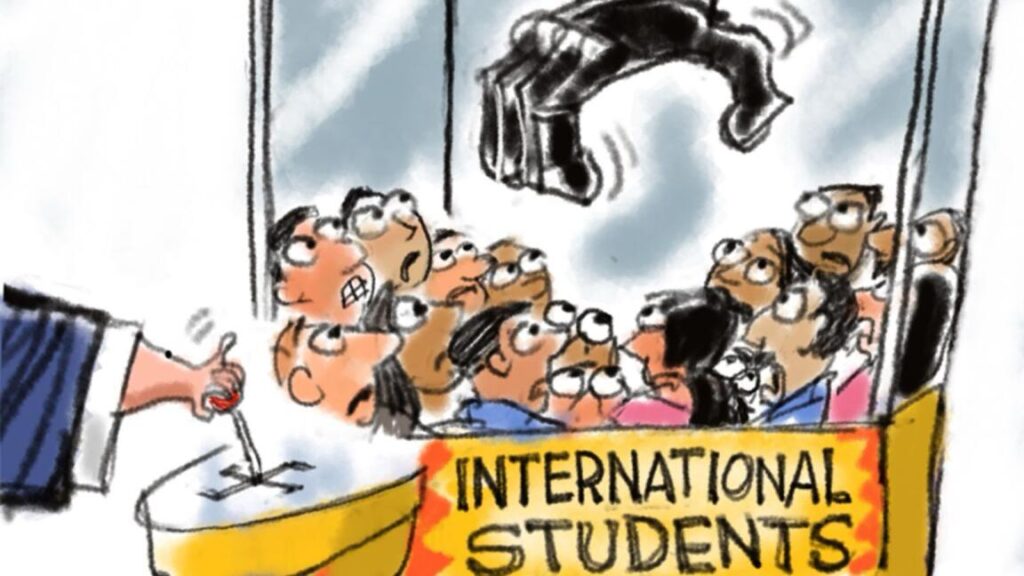Trump knows that his bid for the Supreme Court to let him scrap the Constitution’s right to birthright citizenship is a loser. But it’s his Trojan Horse to get the Court to limit the scope of preliminary injunctions to the parties to the litigation instead of covering every person and company in the country, as they do now.
Nationwide injunctions have stifled many of Trump’s illegal efforts through Executor Orders, such as drastically paring the government workforce, drastically cutting financial assistance for domestic programs, freezing foreign aid, and ending diversity programs. If Trump gets his way, nation-wide injunctions that block unconstitutional executive orders will have to wait until they are decided by the Supreme Court to determine if they’re enforceable nation-wide.
In the meantime, Trump can continue to enforce unconstitutional executive orders for as long as it takes to get a Supreme Court decision. For example, if a lower court enjoins Trump from enforcing an order to jail journalists who oppose him as a violation of the 1st Amendment, the case must be decided by the Supreme Court before we know if the order can apply nation-wide.
Unfortunately, the Supreme Court has a track record of delaying decisions to protect Trump. For example, the Court’s conservative majority delayed his criminal trials until after the 2024 election. By contrast, it took the Court just 16 days to decide Nixon wasn’t immune from prosecution and one day to make Republican George W. Bush President in his legal contest with Al Gore.
The results of limiting the scope of injunctions, as Trump is asking the Supreme Court to do, seems unworkable. First, it will give Trump the choice of where to and, more importantly, where not to enforce his unconstitutional executive orders. That will open the door to requiring donations to his campaign to accommodate the interests of different parties, such as universities with large international student bodies, who pay higher tuitions than U.S. citizens.
Immigrants, especially pregnant immigrants, will rush to locations where Trump hasn’t challenged preliminary injunctions or where courts have issued injunctions that apply only to litigants or in their districts. For instance, a group of blue states challenging Trump’s birthright citizenship order win an injunction blocking the order in their states while it remains in place in other states.
There’s reason to worry, however, that the Supreme Court’s favoring of Trump will continue. Although it recently blocked Trump from using the 1798 Alien Enemies Act to deport alleged gang members to a notorious Salvadoran prison without due process, it chose not to decide whether the 1798 law was applicable.
The 1798 Alien Enemies Act allows the president to skip the usual immigration court process to detain and deport anyone age 14 or older from a “hostile nation or government” when “there is a declared war” or when a “foreign nation” threatens “invasion or predatory incursion” against the United States. The law has been used only three times: during the War of 1812 and World Wars I and II – each time satisfying the law’s requirement that a war had been declared.
Trump bizarrely maintains that we are being invaded by Nicaraguan gangs. The Supreme Court could have taken judicial notice (a legal principle that allows a court to acknowledge a fact without requiring proof) of the falsity of Trump’s claim. Had the Justices held that the1798 law was inapplicable, all Trump’s offensive orders would be declared unconstitutional across the entire country.
Also, it seems that chaos is acceptable to Justices Alito, Thomas and Gorsuch when it benefits Donald Trump. For example, the Supreme Court unanimously put Trump back on the Colorado ballot holding that different ballots in different states at different times could nullify the votes of millions and change the results of elections. The Court unanimously held, “Nothing in the Constitution requires that we endure such chaos.”
Yet Thomas, Alito and Gorsuch seem to be willing to tolerate the chaos that attends limited injunctions. They’ve gone public about their preference to limit nationwide injunctions to litigants and to the judges districts even though it would result in chaos. They joined a Gorsuch opinion, warning that “lower courts would be wise to heed that retiring the universal injunction … will lead federal courts to become a little truer to the historic limits of their office, and promote more thoughtful rulings.”
There’s more reason to worry. The Supreme Court let the Trump administration remove, pending appeal, protections from nearly 350,000 Venezuelan immigrants who had been allowed to remain in the United States without risk of deportation under an Obama program. The decision affects the many Venezuelans currently living in the United States legally under the Biden program.
Sadly, the Supreme Court has, for now, evaded its obligation to defend the Constitution’s core mandate of three co-equal, independent branches of government. It could allow courts to hold Trump and his enablers in contempt for violating their orders and prosecute them with an attorney outside the Execute branch.







